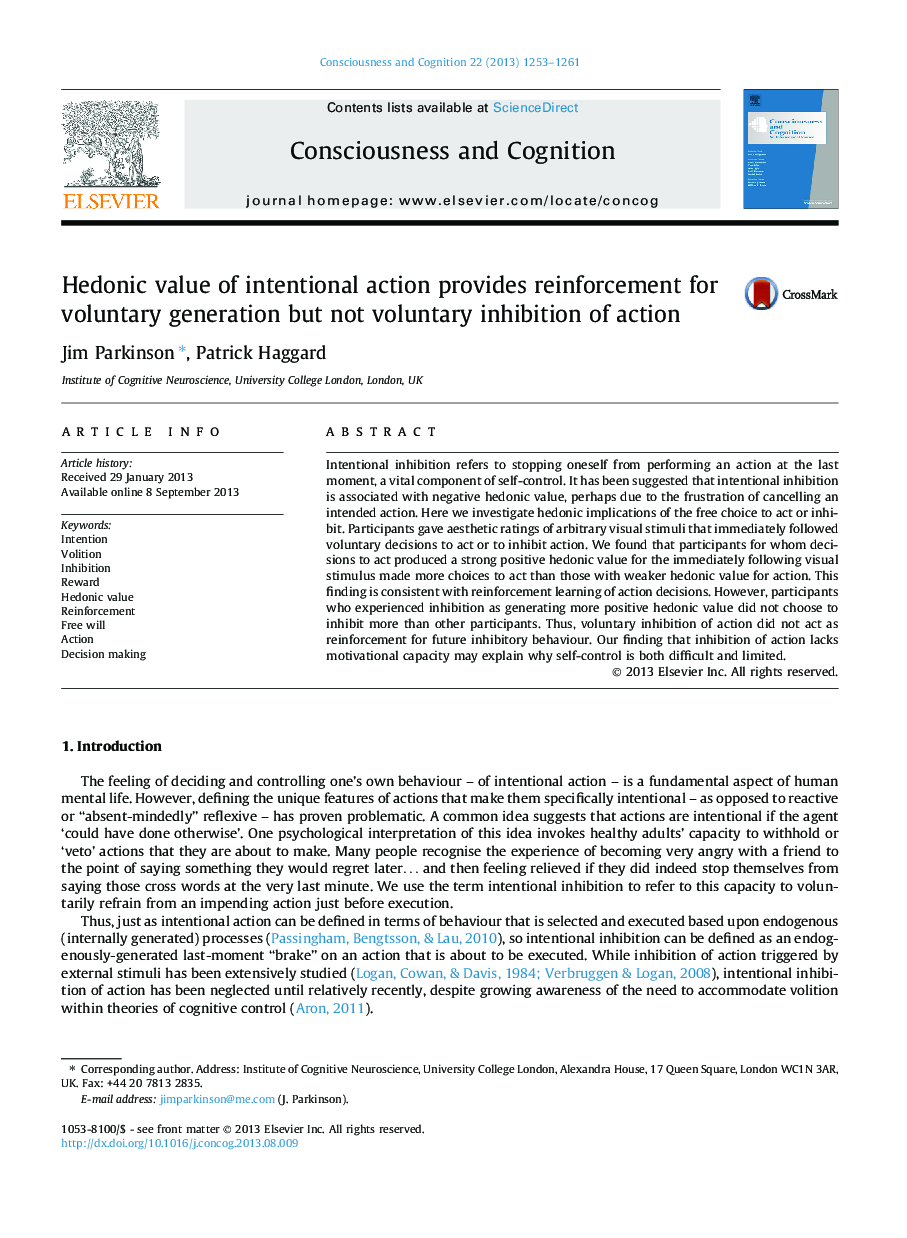| Article ID | Journal | Published Year | Pages | File Type |
|---|---|---|---|---|
| 10458508 | Consciousness and Cognition | 2013 | 9 Pages |
Abstract
Intentional inhibition refers to stopping oneself from performing an action at the last moment, a vital component of self-control. It has been suggested that intentional inhibition is associated with negative hedonic value, perhaps due to the frustration of cancelling an intended action. Here we investigate hedonic implications of the free choice to act or inhibit. Participants gave aesthetic ratings of arbitrary visual stimuli that immediately followed voluntary decisions to act or to inhibit action. We found that participants for whom decisions to act produced a strong positive hedonic value for the immediately following visual stimulus made more choices to act than those with weaker hedonic value for action. This finding is consistent with reinforcement learning of action decisions. However, participants who experienced inhibition as generating more positive hedonic value did not choose to inhibit more than other participants. Thus, voluntary inhibition of action did not act as reinforcement for future inhibitory behaviour. Our finding that inhibition of action lacks motivational capacity may explain why self-control is both difficult and limited.
Related Topics
Life Sciences
Neuroscience
Cognitive Neuroscience
Authors
Jim Parkinson, Patrick Haggard,
